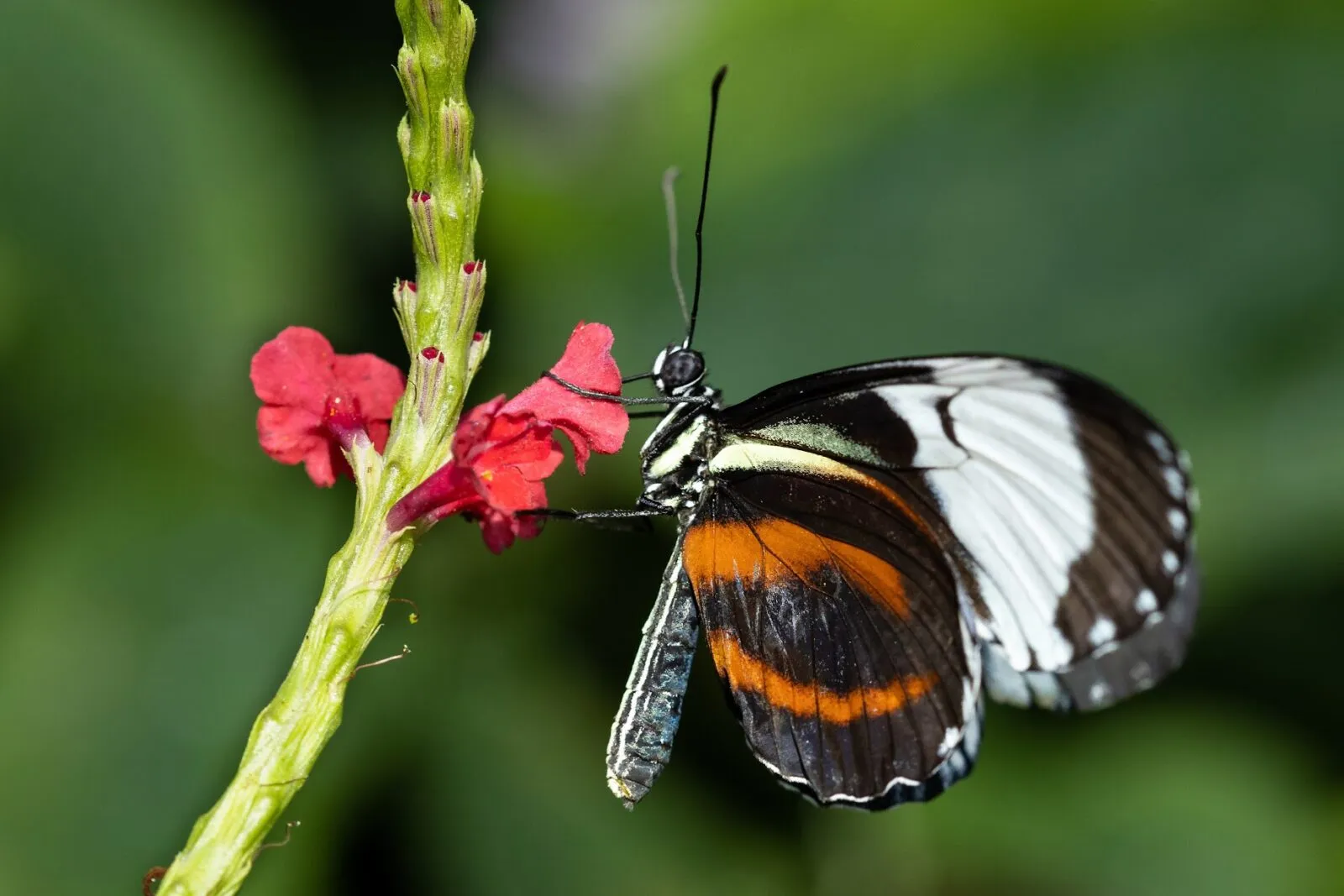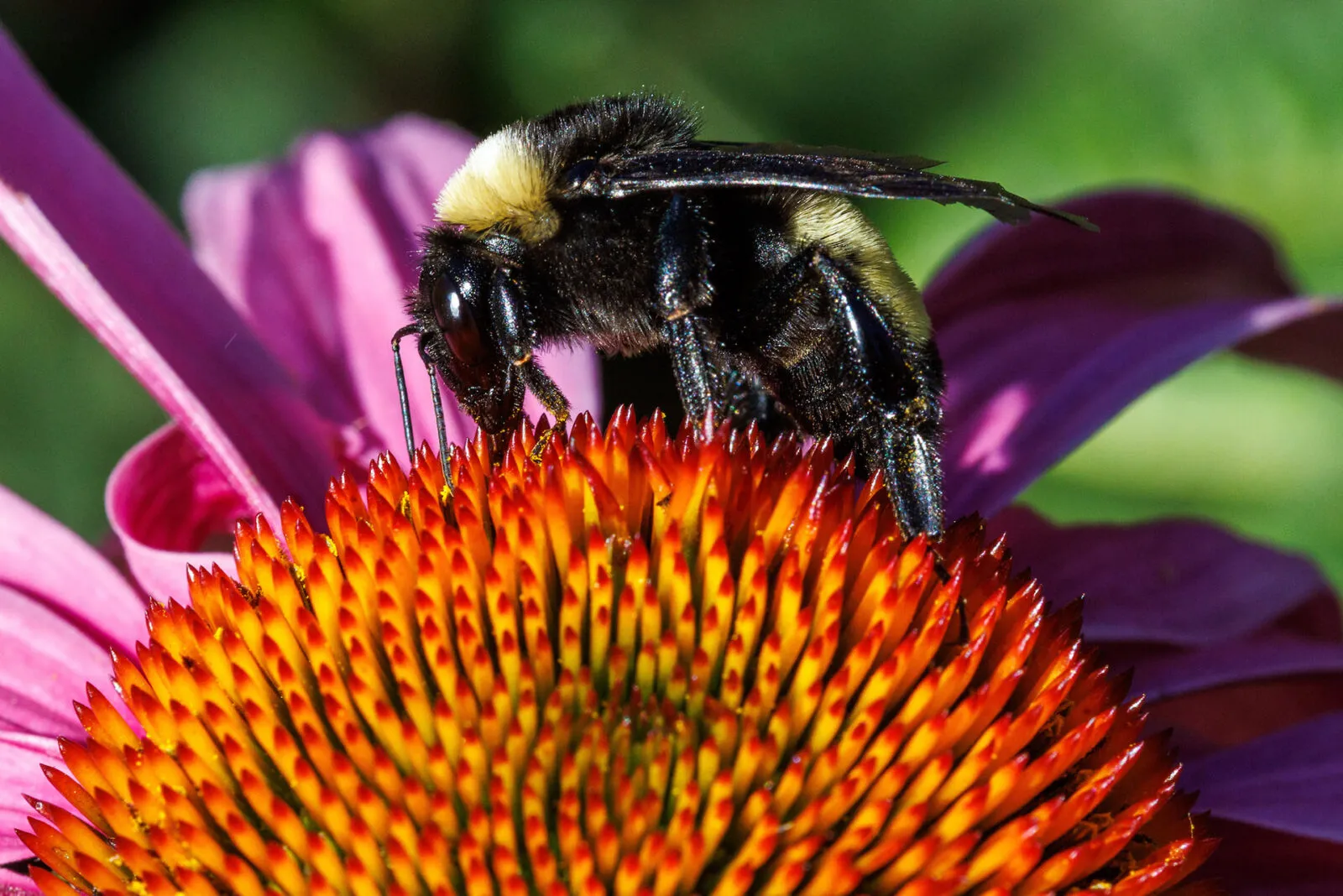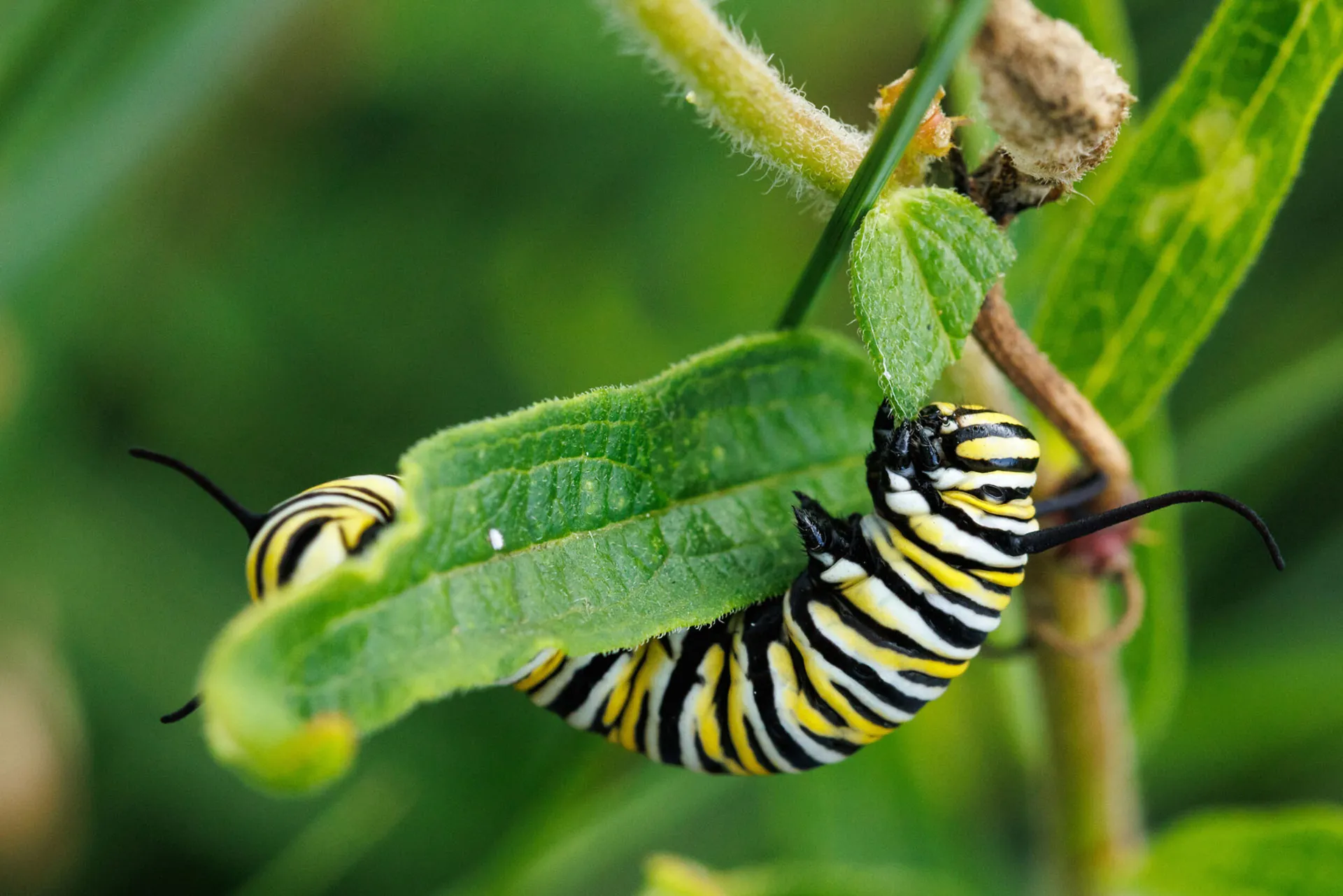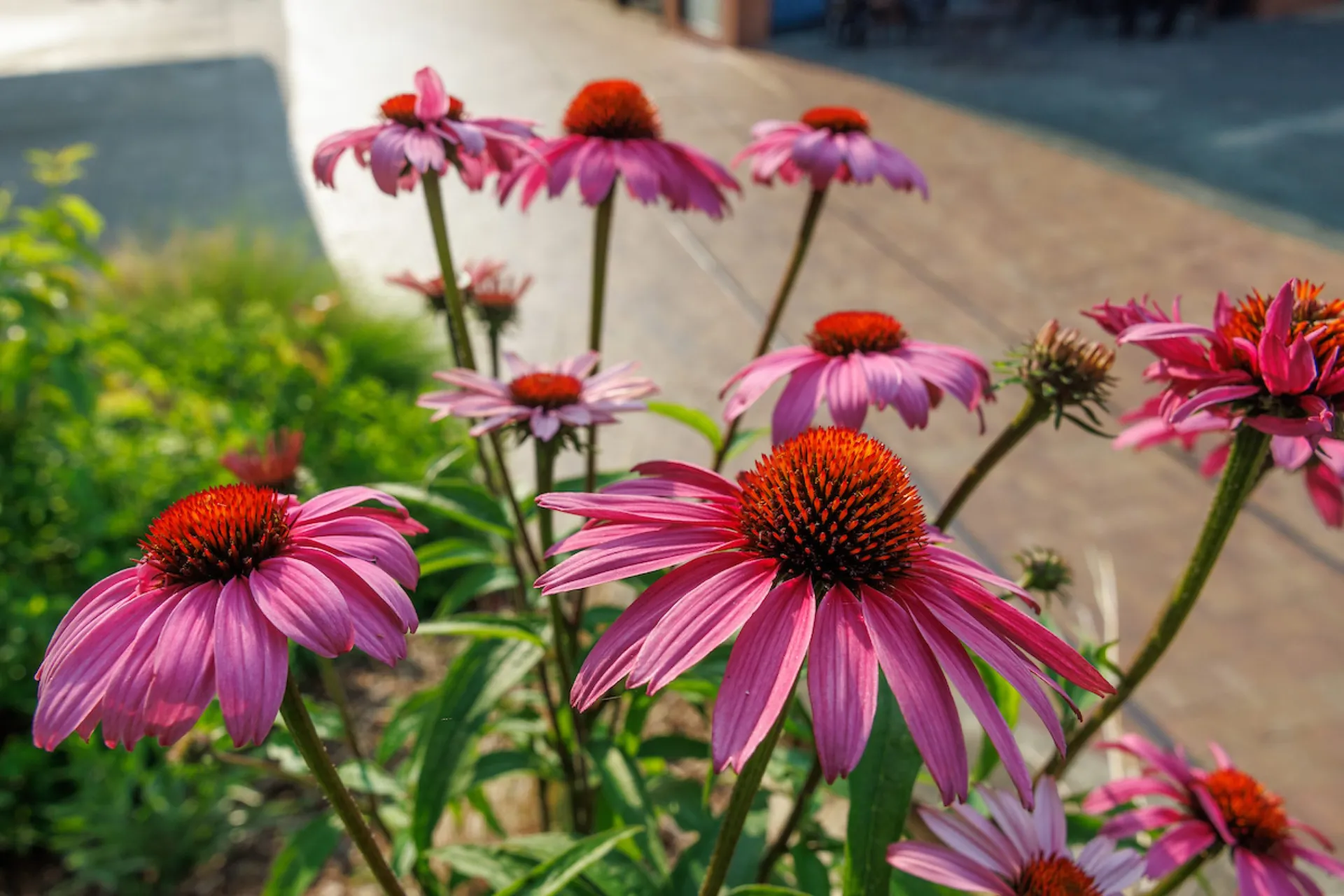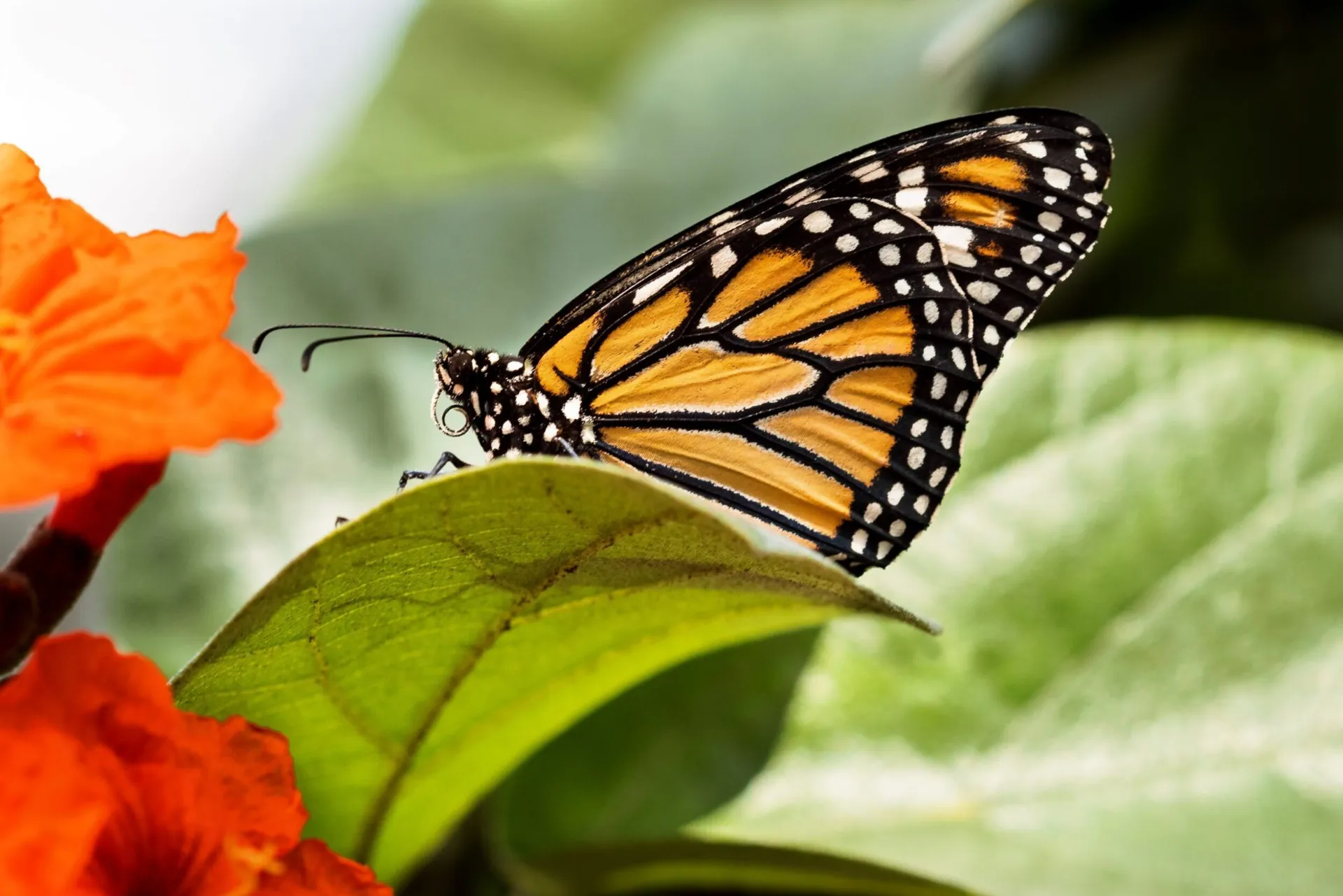A new self-guided “Pollinator Pathway” experience has landed on the Tennessee Aquarium campus! As visitors enjoy gardens on the Aquarium plaza and across the street at the IMAX Theater, they will discover the importance of the world’s many species of pollinators and the ways we all can help protect them and their natural habitats.
Tennessee Aquarium’s Pollinator Pathway is supported by the Tennessee Department of Transportation (TDOT)’s Pollinator Habitat Program.
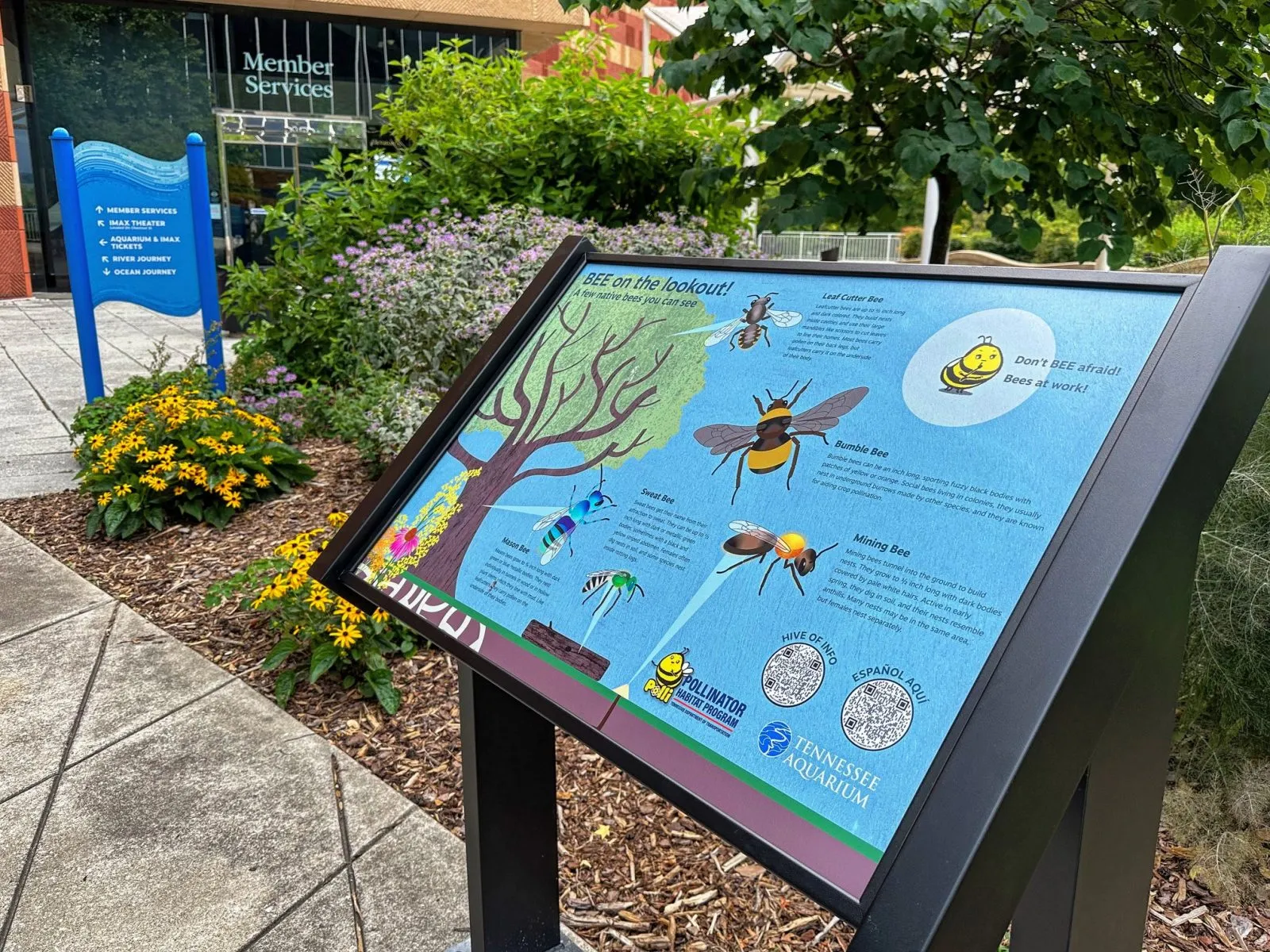
What is a pollinator?
A pollinator is any living thing that helps transfer pollen from one flower to another. Pollination must occur for plants to produce fruits, seeds and new plants.
Pollinators come in different shapes and sizes. From tiny ants and bees, to larger animals like hummingbirds, bats in Central America, and even lemurs in Madagascar. Pollen gets stuck to the pollinator’s legs, fur, or beaks while searching for food, shelter, or nest-building materials.
Why are pollinators important?
One out of every three bites of food we take is made possible by pollinators including fruits, vegetables, seeds, and all of the products made from these foods. Pollinators are also important to the health of ecosystems around the world – whether through helping to provide food and habitat for wildlife or aiding in the growth of new plants that stabilize soil and clean the air we breathe.
A Plethora of Pollinators
Insects like bees or butterflies probably come to mind when you think about pollinators but birds and even some mammals also play a role!
What can we all do to help pollinators?
Because of the vital services they provide, pollinators are superheroes of the natural world. But, they need our help. Scientists have measured an alarming decline of pollinators. Habitat loss, invasions of non-native plants, and toxic pesticides are causing pollinators to disappear.
Luckily, there are some easy ways to provide a welcoming environment for pollinators. You can create a natural, pesticide-free portion of your yard to help these superheroes thrive. Plant a pollinator garden with native plants. Consider adding special pollinator-friendly items like bug hotels and watering areas. This doesn’t require a lot of space. Container gardens with native, nectar-producing blooms can make a big difference to bees and butterflies in urban areas.
BEE-come a pollinator promoter!
You have the power to create more buzz about pollinators. Share photos of your pollinator garden and let others know what you’ve learned on your social networks. Soon you’ll BEE-come a pollinator promoter!

Meet Polli the Bee from Tennessee
The Tennessee Department of Transportation (TDOT) is actively promoting pollinator education and has developed interactive lessons and videos, associated to Tennessee K-12 academic standards for science, featuring me and my pollinator friends! We hope that Tennessee Educators, students, and the public enjoy learning more about us and our impact in the state and the world!

